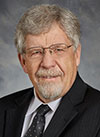Question
Recently, the opposing attorney in a litigation matter cancelled a deposition 30 minutes before the deposition was scheduled to begin. This created a significant hardship for me and my client. Was the opposing attorney’s action ethical?
Answer
Wisconsin does not have a specific ethics rule that addresses this type of behavior. It is possible that the lawyer cancelled the deposition because the lawyer never intended to conduct the deposition but wanted to create “angst” and extra work for you and the client as a strategy to make the litigation more challenging. It is also possible that the opposing lawyer realized that the deposition was not necessary and decided to cancel the deposition with little notice. We should not make assumptions about the opposing lawyer’s intention, but I think lawyers have been engaging in more “sharp practices” recently.
 Dean R. Dietrich, Marquette 1977, is the president-elect of the State Bar of Wisconsin. He is with the law firm of Weld Riley S.C., Wausau, and is past chair of the State Bar Professional Ethics Committee.
Dean R. Dietrich, Marquette 1977, is the president-elect of the State Bar of Wisconsin. He is with the law firm of Weld Riley S.C., Wausau, and is past chair of the State Bar Professional Ethics Committee.
Several Wisconsin ethics rules touch on lawyer conduct; however, enforcement of those rules can be very challenging because the Office of Lawyer Regulation must prove the lawyer’s intent to engage in the bad behavior. SCR 20:4.4, “Respect for rights of 3rd persons,” provides that “[a] lawyer shall not use means that have no substantial purpose other than to embarrass, delay, or burden a third person….” The challenge in your situation would be showing that the opposing attorney’s actions had no substantial purpose other than to cause delay to or be a burden on the client.
SCR 20:3.2 provides that “[a] lawyer shall make reasonable efforts to expedite litigation consistent with the interests of the client.” Again, it would be difficult to establish that the behavior of the opposing attorney violated this rule.
Under 20:3.4(d), a lawyer must not “in pre-trial procedure, make a frivolous discovery request or fail to make reasonably diligent effort to comply with a legally proper discovery request of an opposing party….” Proving that the opposing attorney violated this rule also would be difficult.
Finally, SCR 20:8.4(c) provides that “[i]t is professional misconduct for a lawyer to … engage in conduct involving dishonesty, fraud, deceit, or misrepresentation….” It would be hard to establish that the opposing attorney engaged in fraud or deceit by scheduling the deposition without intending to go through with the deposition.
The above shows how challenging it would be to pursue a grievance against the opposing lawyer for this behavior. If the scheduling of the deposition was only done to create a hardship to you and your client, the behavior is an example of decreased civility in the legal profession. Civility among lawyers is a topic of discussion throughout the profession and, to preserve the profession’s reputation, should be explored further.
» Cite this article: 96 Wis. Law. 35 (May 2023).
